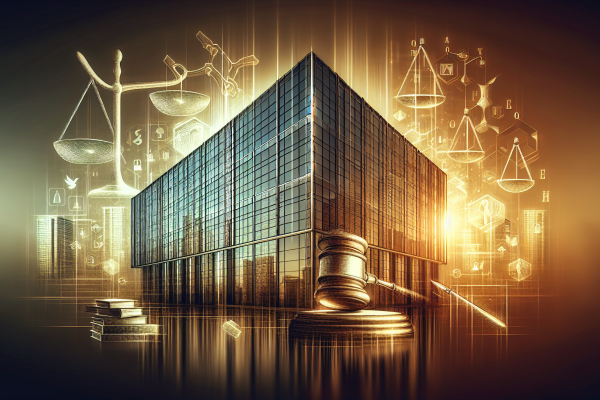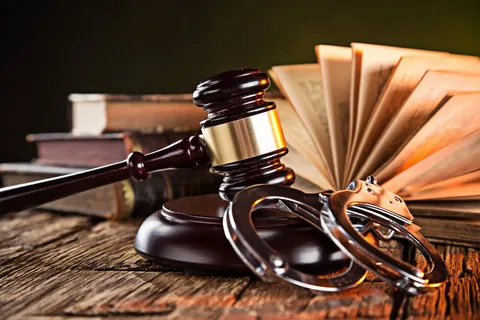Suppose you are facing criminal charges and cannot afford a private lawyer. In that case, you may be eligible for a public defender. Public defenders are lawyers who work for public defender offices. This government agency represents people accused of crimes who cannot afford attorneys.
Public defender offices are different from private law firms in several ways:
- Public Defenders are funded by the government, not clients.
2. Public defenders handle criminal cases, not civil cases.
3. Public defenders do not choose their clients but are appointed by the court to represent them.
Table of Contents
How a Public Defender Office Works
A public defender’s office is composed of several public defenders, who are lawyers who specialize in criminal defense. Public defender offices may also have other staff members, such as investigators, paralegals, social workers, and administrative assistants.
When a person is arrested and charged with a crime, they have the right to have a lawyer represent them in court. They can apply for a public defender if they cannot afford their own lawyer. The court will then determine if they are eligible for a public defender based on their income and assets.
If the court appoints a public defender to represent the person, the public defender’s office will assign one of its lawyers to the case. The lawyer will then meet with the person, review the evidence, advise them of their rights and options, and prepare their defense.
The lawyer will also communicate with the prosecutors, negotiate plea deals, file motions, and represent the person in court hearings and trials. The lawyer will work to achieve the best result for the person. This is whether it is dismissal, reduction of charges, acquittal, or a lenient sentence.
How to Qualify for a Public Defender
To qualify for a public defender, you must meet certain criteria set by the court. These criteria may vary depending on the jurisdiction and the type and severity of the charges you face.
Generally speaking, you must show that you are indigent, meaning you do not have enough income or assets to pay for a private lawyer. You may have to complete an application form and provide proof of your income and expenses. This may include pay stubs, tax returns, bank statements, bills, etc.
The court will then review your application and decide if you qualify for a public defender. The court may also charge you a nominal fee for applying for or using a public defender. If you do not qualify for a public defender, you must hire a lawyer or represent yourself.
Benefits and Drawbacks of Public Defenders
Having a public defender has both benefits and drawbacks. Some of the benefits include:
- You do not have to pay for your lawyer’s services (except fees).
- You get a lawyer who is experienced and knowledgeable in criminal law
- You get a lawyer familiar with the local courts and prosecutors
- You get a lawyer who has access to resources such as investigators and experts
Some drawbacks include:
- You cannot choose your lawyer or change it easily
- You may not get as much attention or communication from your lawyer as you would like
- You may have to wait longer for your case to be resolved due to high caseloads and limited resources
- You may have less control over your case and less input into your defense strategy
Alternatives to Public Defenders
You may have some alternatives if you do not qualify for a public defender or are unhappy with your current defender. Some of these alternatives include:
- Hiring a private lawyer: Private lawyers work for themselves or for an independent law firm. You can choose your own private lawyer and pay them directly for their services. A defense attorney may offer more personalized attention and communication than a public defender. However, hiring a private lawyer can be expensive and may not guarantee better results than a public defender.
Legal aid is another way low-income people can get free or low-cost defense representation. Legal aid is provided by non-profit organizations funded by grants, donations, or fees. Legal aid may offer more flexibility and variety than public defenders. Legal aid may not be available in every jurisdiction or type of case. Legal aid may also have stricter eligibility criteria and longer waiting lists than public defender offices.
- Speaking for yourself: Defending yourself is when you act as your lawyer and handle your case. Representing yourself may give you more control and autonomy over your case. Representing yourself can be very risky and challenging. You must learn the law and the procedures, gather the evidence, file the paperwork, and argue your case in court. You will also have to face the prosecutors and the judge without legal assistance or protection.
Questions to Ask Your Public Defender
If you have a public defender, you should communicate with them regularly and ask questions about your case. Some of the questions you should ask include:
- What are the charges against me, and what are the possible penalties?
- What are the strengths and weaknesses of my case and the state’s case?
- What are my legal rights and options?
- What is your defense strategy?
- What are the possible outcomes of my case, and what are the pros and cons of each one?
- How long will my case take, and what are the next steps?
- How often will you update me on my case, and how can I contact you?
- How can I help you with my case?
Conclusion
Public Defenders are government agencies that represent people accused of crimes who cannot afford lawyers. Each case is assigned by the public defenders.
To qualify for a public defender, you must show that you are indigent and cannot pay for a private lawyer. Having a public defender has benefits and drawbacks, such as getting a free and experienced lawyer versus having less attention and communication from your lawyer.
You may have some alternatives if you do not qualify for a public defender or are unhappy with your current defender. These alternatives include hiring a private lawyer, applying for legal aid, or representing yourself. However, these alternatives may also have their own costs and risks.
If you have a public defender, you should communicate with them regularly and ask questions about your case. You should also cooperate with them and follow their advice.





